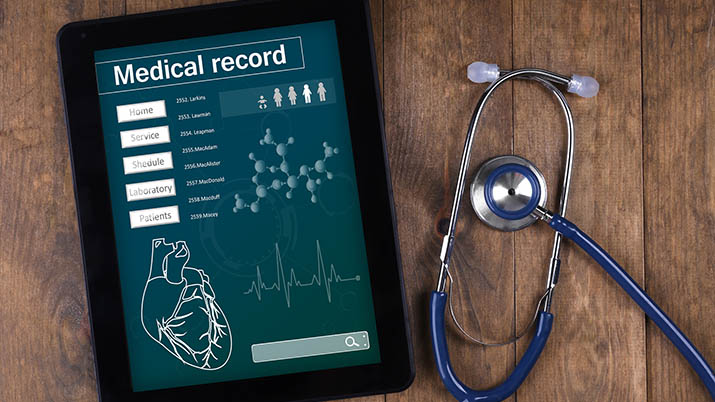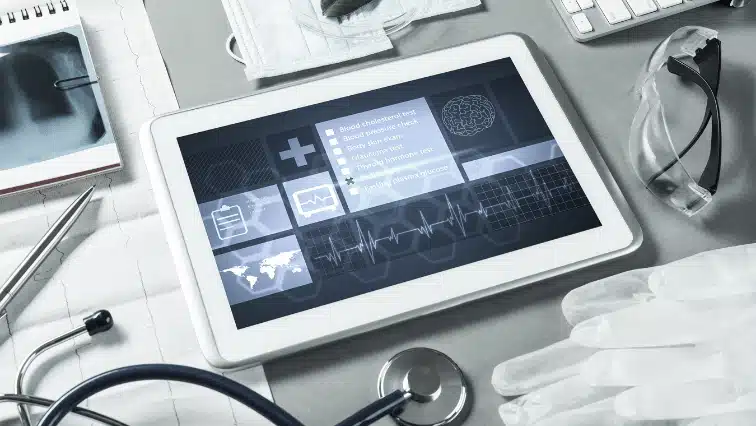Key Takeaways
- Electronic Health Records (EHRs) and Electronic Medical Records (EMRs) can transform African healthcare delivery by improving access to care, health outcomes, and care quality.
- Despite these benefits, significant challenges remain, including a lack of investment, infrastructure, and technological expertise.
- Nonetheless, there is growing interest and investment in EHRs and EMRs in Africa, and these systems could play a role in the region’s healthcare landscape in the coming years.
Have you ever been to two hospitals within a short interval and been asked to perform the same tests, leading to a waste of resources and time? I have, and I can tell you firsthand that it was not a pleasant experience.
In 2022, I visited four hospitals that asked me to repeat at least two previous tests that came out negative. I informed one of the doctors that I had done some of them, but they insisted I do them again.
Perhaps, if these hospitals had adopted the Electronic Medical Record (EMR) or Electronic Health Record (EHR) system, doctors would have easily accessed my medical records, avoiding duplicate tests and procedures.
However, these hospitals — representative of most African hospitals — continue to use paper-based medical and health records, reducing efficiency and effectiveness.
It’s crucial to note that the prospects for EHRs and EMRs in Africa are promising, with a growing recognition of their benefits and increased efforts to promote their adoption.
Consequently, this article will educate you on the benefits of EHRs and EMRs in Africa and why there’s little continent-wide adoption. However, we can’t get to that without understanding what EMRs and EHRs are.
So, what are Electronic Medical Records (EMRs)?

EMRs are computerised medical records that healthcare providers use to capture, store, and share information to support health services delivery to patients.
They provide a patient’s comprehensive medical history, including previous treatments, test results, and other critical information that medical professionals can use to make informed clinical decisions.
Aside from improving the quality of care and patient outcomes, EMRs improve the workflow process, and clinician communication, thus reducing medical errors.
In other words, medical professionals require an EMR if they work alone and do not need to share patient information with other healthcare providers.
A patient needs one if they have a relatively simple medical history that does not include multiple chronic conditions or complex medical cases.
When a medical professional or patient doesn’t need an EMR
Consider Puleng, a South African mother with multiple chronic conditions such as diabetes, heart disease, and high blood pressure. She had seen several doctors for her various ailments, but none had a comprehensive view of her health.
Fortunately, she met with Dr Gogo, who noticed she had multiple medical records from several healthcare providers.
To provide Puleng with the best care, the doctor suggested that she have an EHR system, allowing her and other authorised healthcare providers to access her complete medical history, including test results, medication lists, and images.
Puleng’s story teaches us that a patient needs an EHR if they receive care from multiple healthcare providers in different settings, including a primary care physician, specialist, and hospital, or have multiple chronic conditions, including diabetes, heart disease, and high blood pressure.
A doctor focused on patient-centred care and empowering patients to play a more active role in their health also needs the patient’s EHR. Plus, a group practice with multiple specialities, such as a cardiology group with a neurology and gastroenterology clinic, needs one.
But EHRs and EMRs are not the same
An EHR is a digital version of a patient’s complete medical record that includes the information typically found in an EMR and additional data such as images, lab results, and medication lists.
The EHR contains an individual’s health information — including physical, mental, psychological, physiological, and sexual information — and hospital behaviour during all consultations, visits, admissions, and post-hospitalisation periods.
This comprehensive view of a patient’s health performs everything the EMR does while supporting the continuity of care. Patients can also access their EHR to view their medical history, communicate with their healthcare providers, and manage their health.
Meanwhile, some EHRs prevent disease while others help with patient health status diagnosis. Because multiple healthcare providers can access an EHR via remote access and sharing platforms over a secure channel, patients don’t have to repeat information every time.
According to Ifedamola Adefisoye, Co-founder and CTO of Medipal — a cloud-based hospital management system startup — the health record can go anywhere with a patient. Also, a third party can access it if the patient grants them access.
Nonetheless, he says an EMR consists of a database from a single hospital. Hence, the patient record doesn’t easily travel outside the hospital.
Challenges faced in Africa with adopting the EHR and EMR
The EMR is the most common entry point for information technology in the healthcare sector.
In developed countries, they are widely used to manage patient records and facilitate consultations and treatment follow-up, resulting in centralised databases.
However, in developing countries, the adoption and use of EMRs are uncommon. Besides, it’s difficult to determine the exact number of African countries that have adopted EHR systems because adoption varies between countries.
However, some African countries have made significant progress in implementing EHR systems.
For example, Kenya and South Africa have implemented national EHR systems and are working to promote their use. Other countries, including Ghana, Rwanda, and Zimbabwe, are investing in EHR systems, though adoption may be lower.
While some African countries invest in national EHR systems and provide training and support to healthcare providers, African healthtech startups are also collaborating to promote EHR and EMR use.
African startups, including Nigerian Medipal Healthcare, are building products in the healthtech space to contribute to EHR’s potential growth and widespread adoption.
Technological advancements might make it easier for healthcare providers to adopt and integrate these systems into their existing healthcare infrastructure.
Meanwhile, paper-based health records are still widely used, and there are few incentives for healthcare providers to adopt EHRs and EMRs in many African countries.
The lack of infrastructure, including reliable electricity and Internet connectivity, investment in technology, and the high costs associated with implementing EHRs and EMRs, have limited their widespread adoption.
Bringing it to Nigeria, Adefisoye says, “You see, if the government can address the issue of unstable power supply, it will be a turnaround for better healthcare. We will have many hospitals go digital because there is a good power supply to power their computers and gadgets.”
Integrating EHRs and EMRs with existing healthcare systems can be difficult, and African countries might need to invest in technology and training to ensure a smooth transition.
Adefisoye believes that digital illiteracy among healthcare providers and patients is a barrier to EMR and EHR adoption.
“I think it is now necessary for our doctors and nurses to learn the use of computers in medical school, which is crucial to adapting to modern practice,” he says.
Further, data privacy and security concerns can stymie EHR and EMR adoption.
But how secure are EHRs?
Although EHRs are secure, they are not impervious to security breaches.
Because EHRs contain sensitive and confidential patient information, their security is a huge concern.
Several factors, including the technology that stores the data, the processes in place to protect it, and the ability to respond to security incidents, determine how secure EHRs are.
These electronic health records are designed with industry-standard security features such as encryption, secure data transfer protocols, and access controls. However, security risks can still arise due to system flaws, data breaches, or human error.
Consequently, traditional health providers and healthtech companies must implement a comprehensive security strategy, including regular security assessments, staff training, and incident response plans, to ensure the security of EHRs.
Moreover, healthcare organisations should consider using tested and certified EHR systems to meet industry security standards by organisations.
Adefisoye says that Health Insurance Portability and Accountability (HIPAA) is the globally accepted regulatory standard for patient data security and privacy.
“So based on this standard, it is essential to limit facility access and control with authorised access in place, patient data has to be protected, and requests for patients’ data can only become accessible without authorisation in the case of an emergency.”
Technology providers must implement a well-secured security layer to ensure that patients’ data is never compromised.
Furthermore, implementing an audit trail allows the hospital to monitor who has access to what and when. Hospital personnel should also be well-versed in these security protocols.











